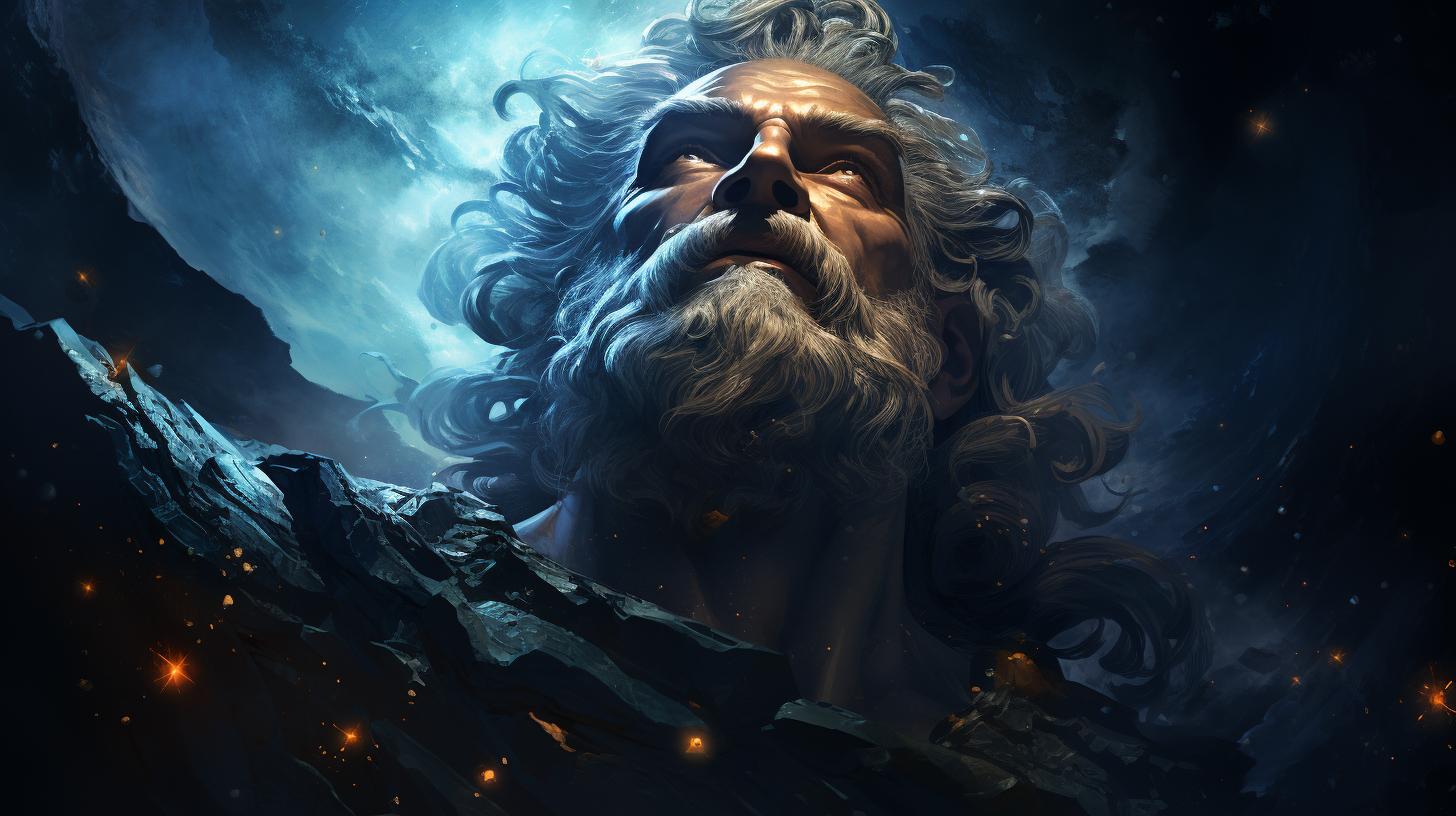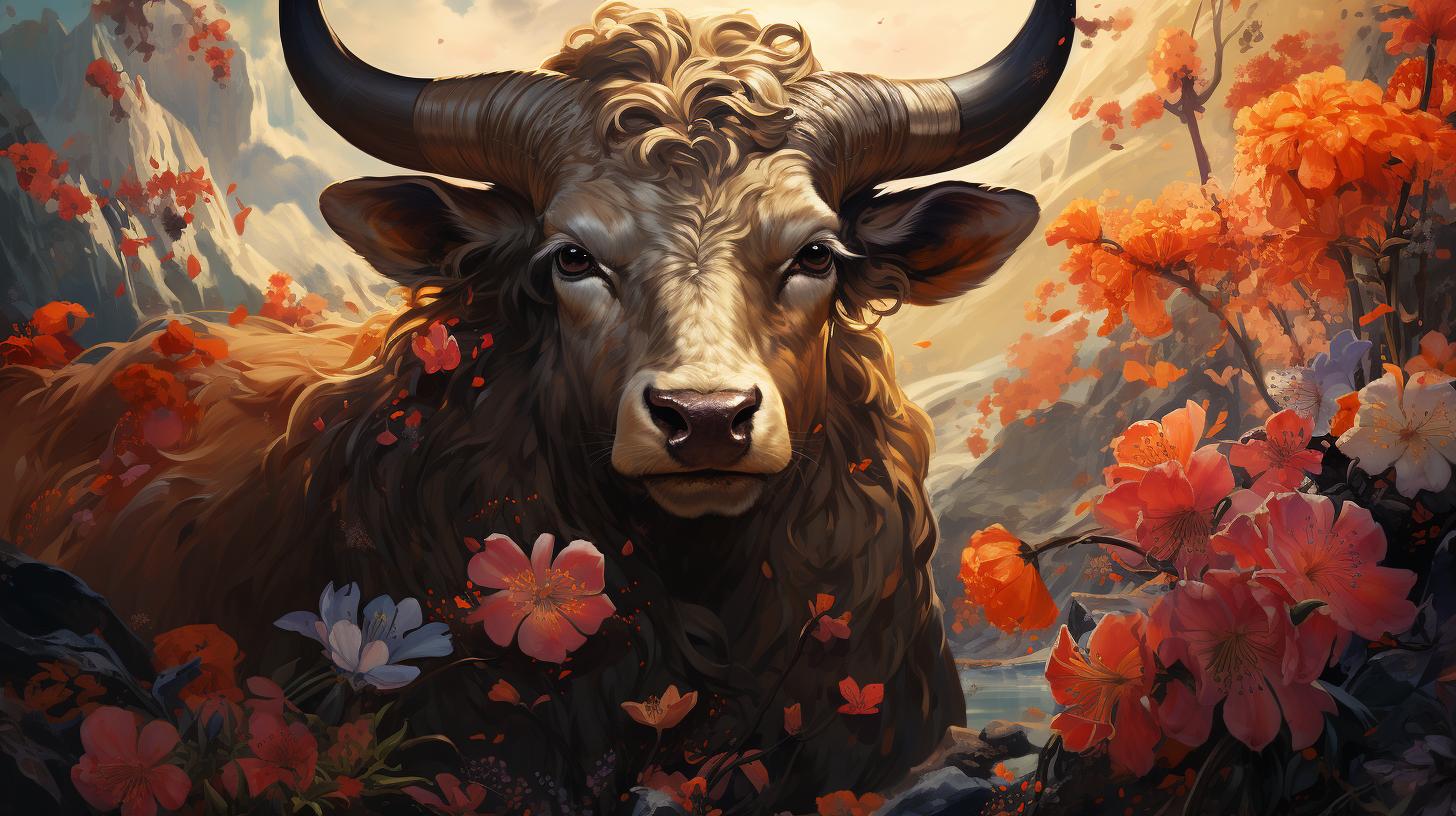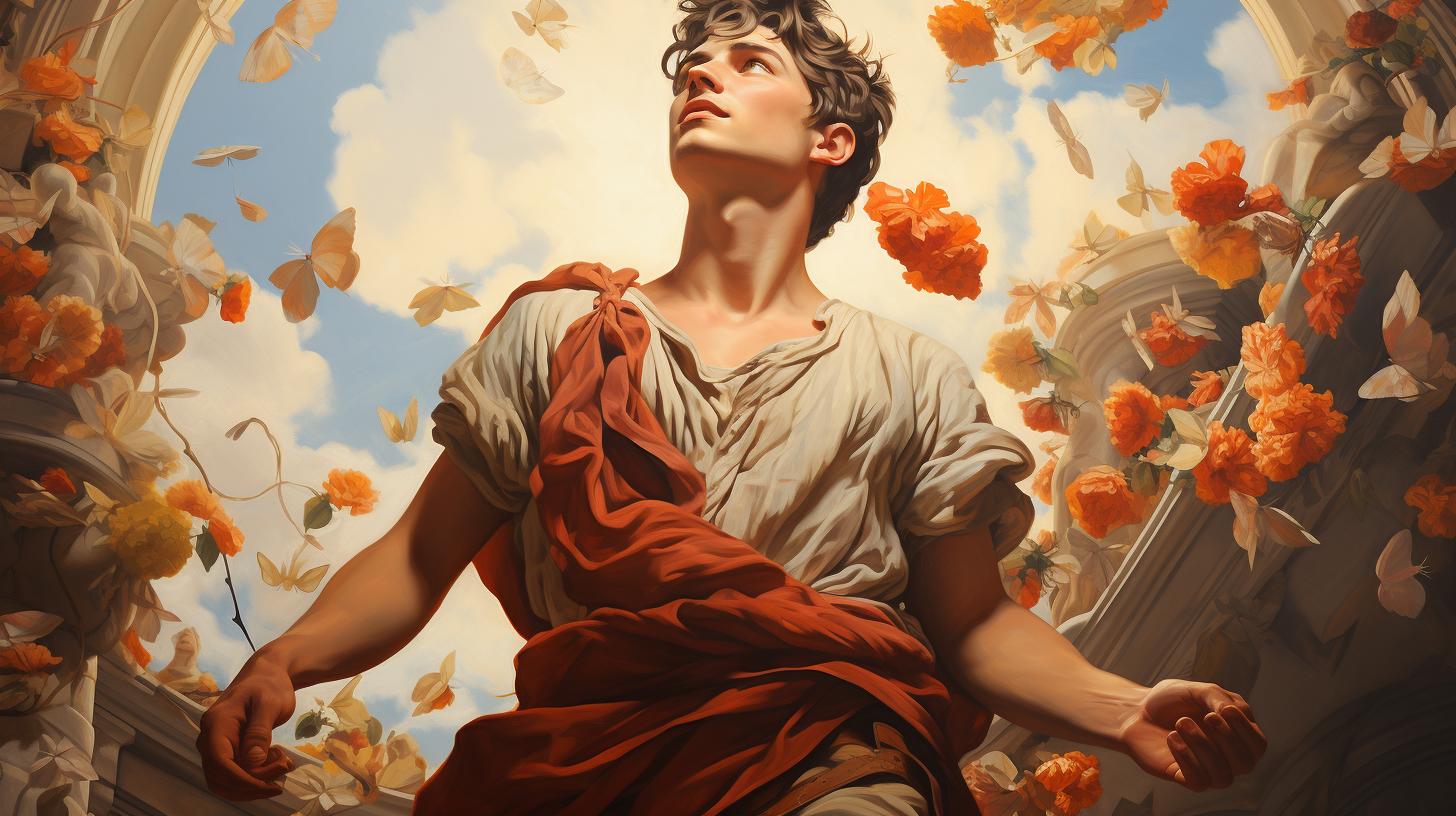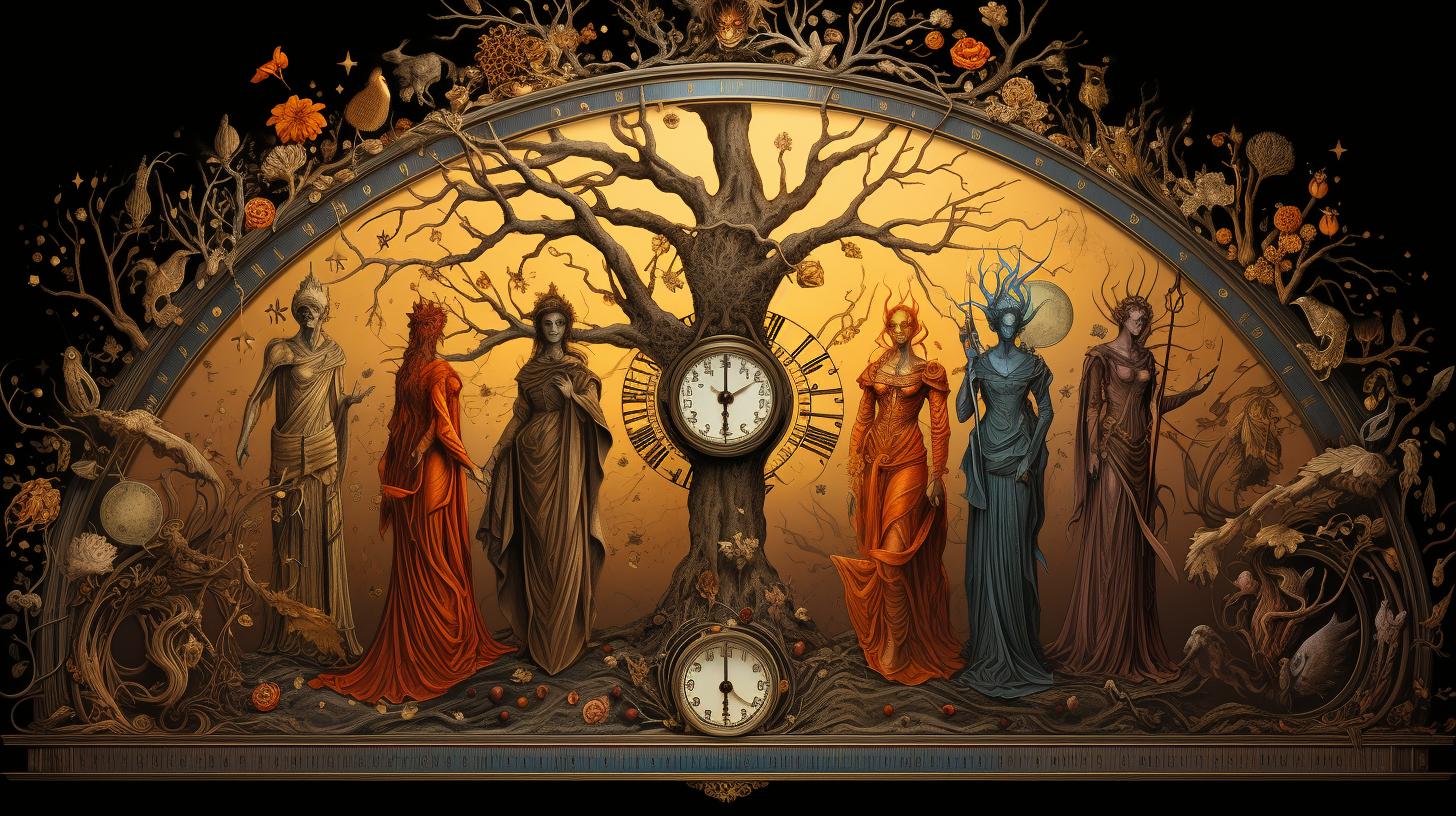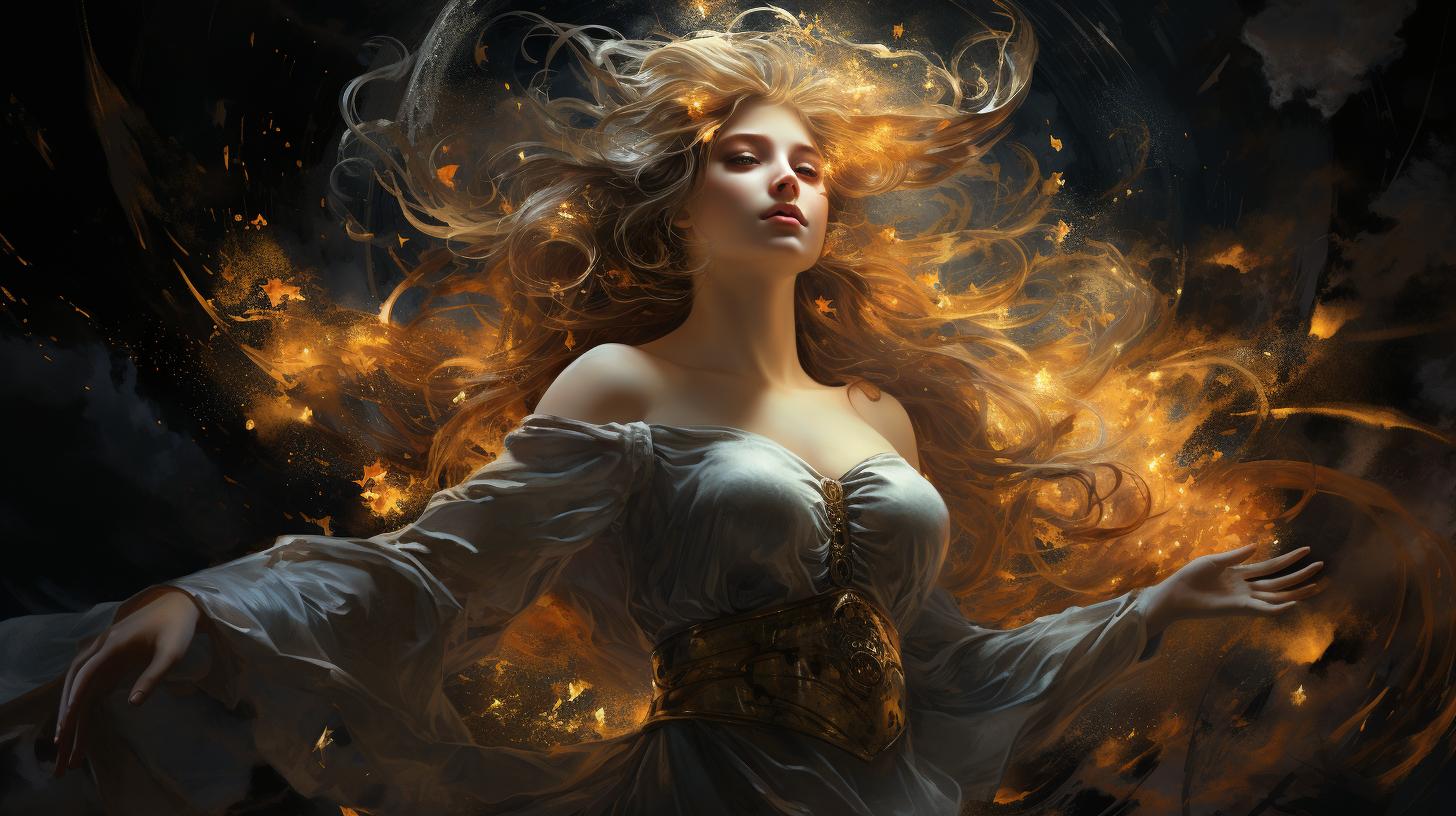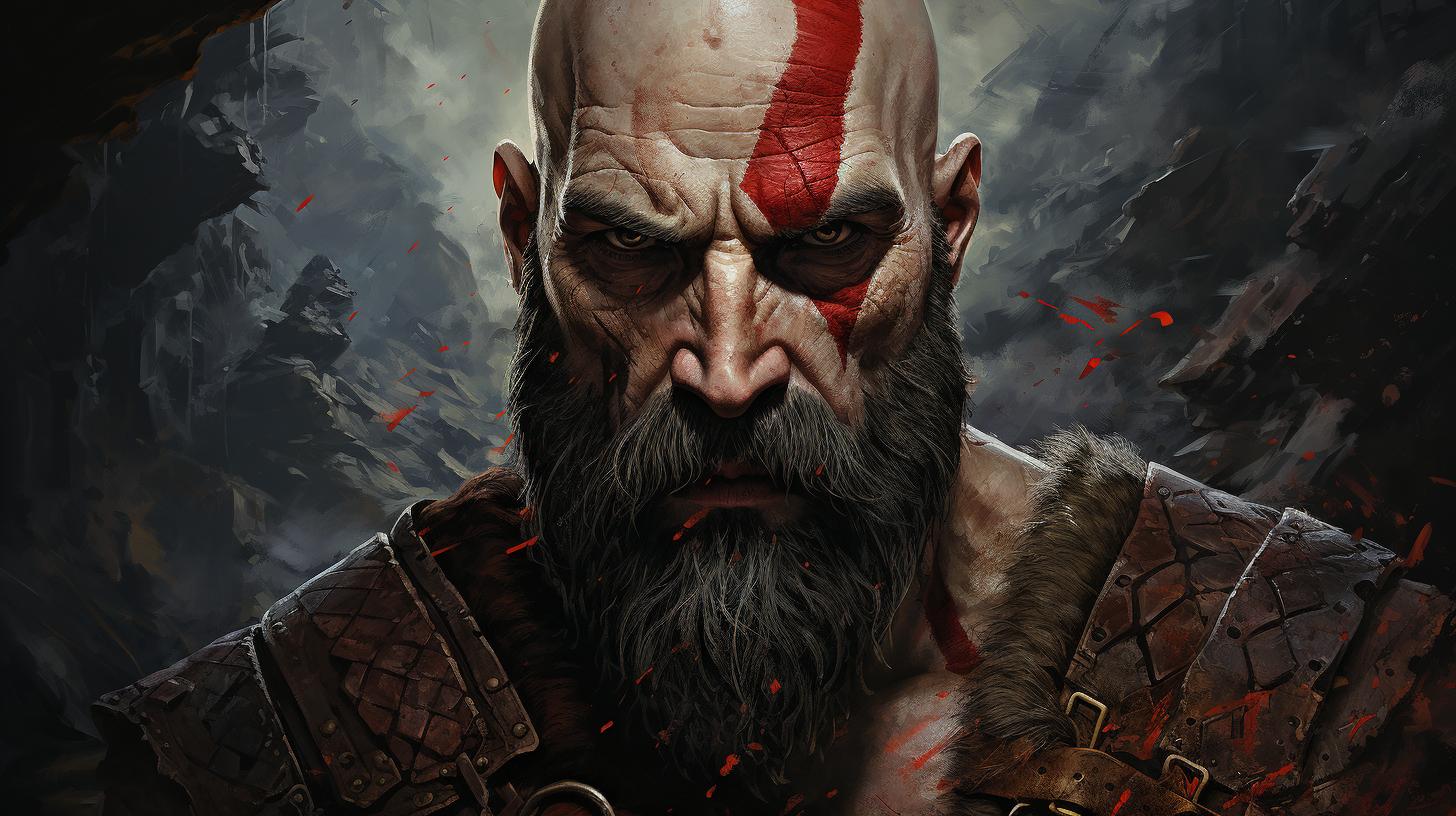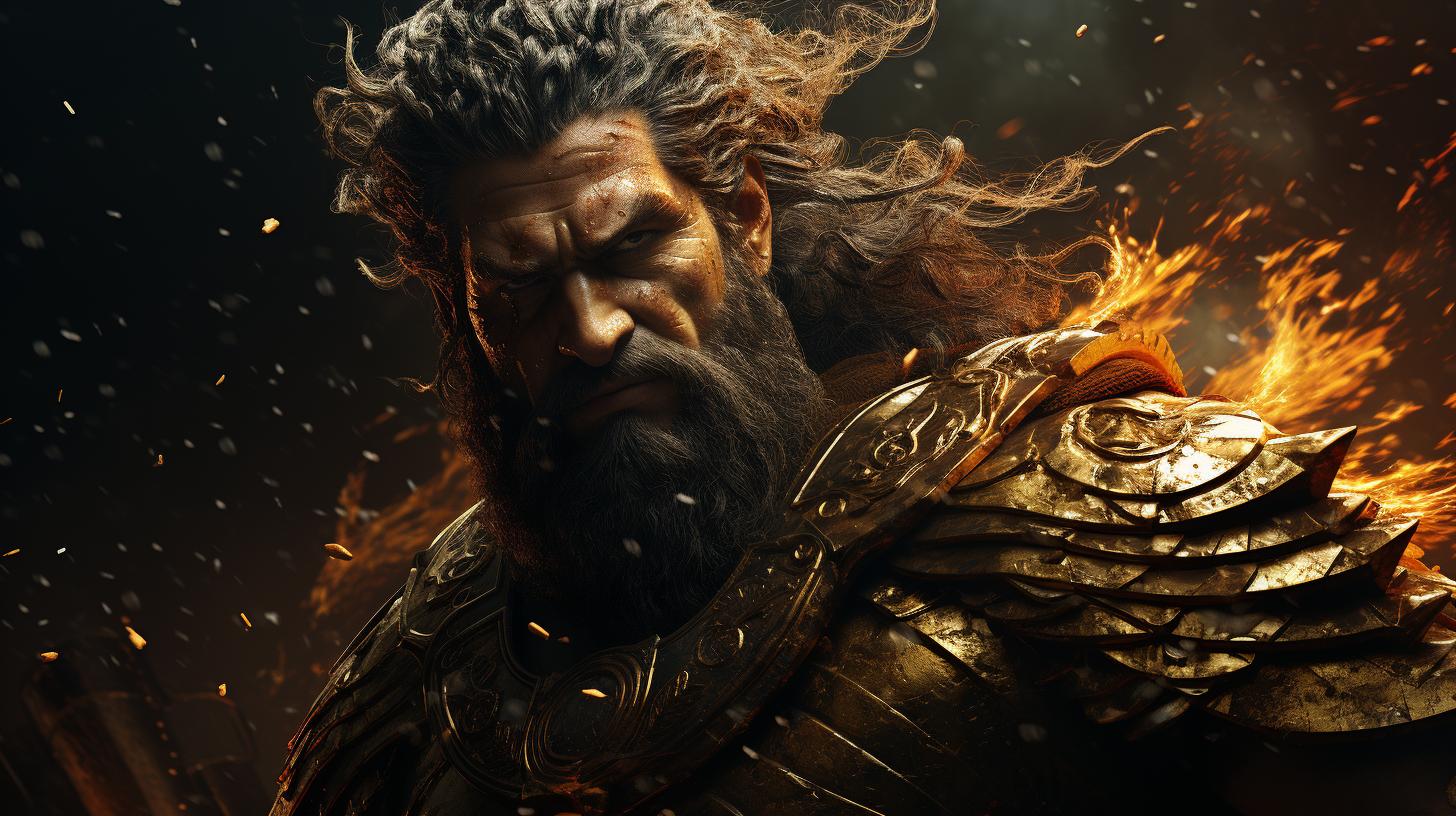Astraeus: Titan God of Stars and Celestial Wonders
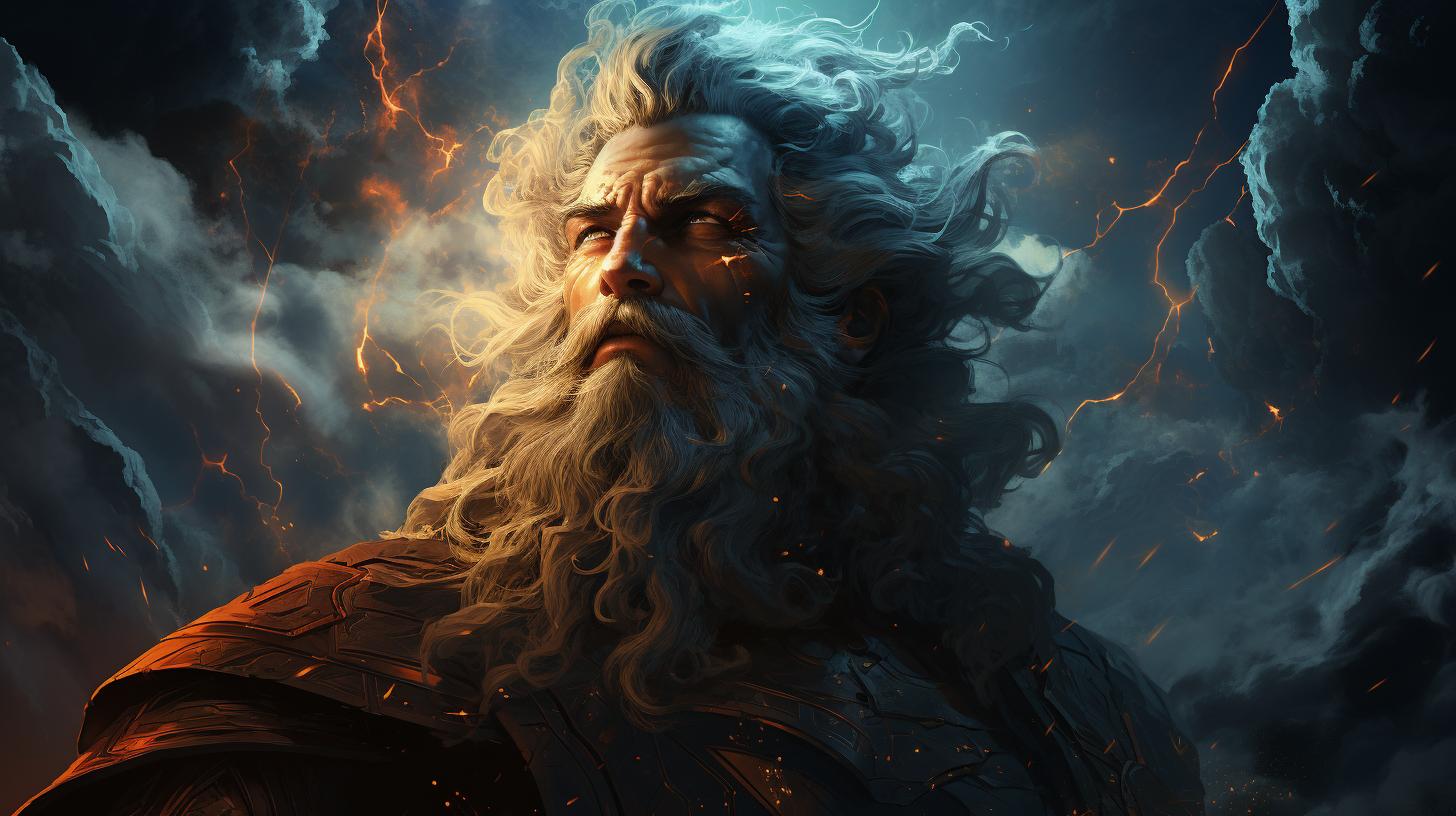
Astraeus, the Greek god of twilight and astrology, holds a significant role in Greek mythology. Known as a powerful titan and the god of stars, his domain extends over celestial phenomena and the intricate art of astrology, marking him as a pivotal figure in the hierarchy of Greek gods.
As the father of the Anemoi (the gods of winds) and the Astra Planeta (the personifications of planets), Astraeus’s influence spans the vastness of the sky and beyond. His lineage, tracing back to Coeus and Crius, places him firmly in the Greek mythology hierarchy, highlighting his importance among celestial gods.
His involvement in legendary wars between Titans and Giants stands alongside titans, showcasing his significant role within the complex Greek god hierarchy.
This article aims to explore the rich mythology and significant connections surrounding Astraeus, shedding light on his enigmatic presence and the symbol of power he represents in ancient Greek literature and art, woven through the fabric of biography and mythology.
Exploring the Mythology of Astraeus, the Greek God of Stars
In this section, we delve into the captivating mythology surrounding Astraeus, the Greek god associated with twilight, the god of stars, and celestial bodies. Discover the intriguing stories and connections that make Astraeus a significant figure in Greek mythology, from his role as the titan god of astrology to his symbolic representation in ancient texts.
The mythology of Astraeus is deeply intertwined with the Indo-European and proto-Indo-European traditions, highlighting the ancient roots of his celestial domain.
Introduction to Astraeus and Greek Mythology
Let us begin our exploration by introducing Astraeus, a titan god who personifies the twilight and governs the sky, stars, and various aspects of astrology. We will uncover the mythological origins, significance, and the celestial gods associated with Astraeus in the realm of Greek mythology.
His symbol, often associated with the stars and the night sky, highlights his importance in Greek god mythology and astrology. His narrative enriches the tapestry of Greek and Roman mythology, bridging celestial lore across cultures.
The Significance of Astraeus as the Greek God of Stars and Astrology
Astraeus holds a pivotal role as the god of stars and the titan god of astrology. This section will delve into his celestial domain, understanding his connection to the night sky and the heavenly bodies that captivated the ancient Greeks.
Discover the importance of Astraeus in shaping the perception of stars and astrology in Greek mythology, including his contributions to the Greek god hierarchy and his position as a revered celestial god.
The exploration of Astraeus’s mythology illuminates the rich narrative of astra Greek mythology, highlighting his dominion over the stars and celestial phenomena.
Unveiling the Mythical Connections: Astraeus and Eos
One of Astraeus’s significant relationships is with Eos, the goddess of dawn. We will unravel the mythical connections between Astraeus and Eos, exploring their marriage and the divine offspring they brought into the world, further cementing Astraeus’s legacy as the god of stars and his significant role among the celestial gods.
This union underscores the thematic interplay of light and darkness, dawn and dusk, within the broader context of Greek mythology Astraeus.
Astraeus, Greek God of Exploration and the Heavenly Realm
Astraeus’s domain extends to the four corners of the ancient world, underpinning the mythological framework with his celestial oversight.
Astraeus and the Control of the Sky and Astrology
Astraeus’s influence extends beyond the earthly realm as he governs the vast expanse of the sky and its celestial marvels. With his expertise in astrology, he guides the movements of the stars, aligning them in patterns of cosmic significance.
Astraeus’s celestial control allows him to bring balance and harmony to the heavens, ensuring a seamless transition between day and night. His governance over celestial phenomena places him within the intricate web of proto-Indo-European mythology, highlighting his ancient origins and enduring legacy.
The Father of the Anemoi: Personifications of the Winds
Astraeus’s family tree branches out to encompass the Anemoi, an ensemble of wind deities. As their father, Astraeus bestows upon them the power to shape the winds that traverse the world.
Boreas, the north wind; Zephyrus, the west wind; Notus, the south wind; and Eurus, the east wind, owe their existence to Astraeus’s divine lineage. Each wind bears its unique characteristics, influencing weather patterns and shaping the natural world.
The Anemoi, as elemental forces, represent the dynamic interplay of nature within Greek mythology, embodying the essential principles that govern the cosmos.
The Astra Planeta: Astraeus’s Children Personifying the Planets
In addition to the winds, Astraeus holds sway over the Astra Planeta, the personifications of the planets. His children, including Phainon (Saturn), Phaethon (Jupiter), Pyroeis (Mars), Eosphoros (Venus), and Stilbon (Mercury), embody the celestial bodies that wander the sky.
As they traverse the heavens, these planetary deities inspire awe and contemplation, their movements integral to Astraeus’s celestial symphony. The Astra Planeta reflect the ancient Greek’s understanding of the cosmos, weaving the movements of the celestial bodies into the fabric of mythology and astrology.
Embark on a celestial journey as we explore the captivating realm of Astraeus, uncovering the profound influence of his domain over the skies, winds, and planets, and reaffirming his status as a titan god of exploration, astrology, and the celestial wonders.
Astraeus in Ancient Greek Literature and Mythology
Astraeus in the Wars of the Titans and Giants
Astraeus, the Greek god of twilight and astrology, played a significant role in the wars between the Titans and the Giants. As the son of Crius and Eurybia, two Titans, he joined the forces against the Olympian gods.
Known as the god of dusk, stars, and space, his involvement in the Titanomachy and the Gigantomachy, two major conflicts in Greek mythology, underscores his importance in the celestial hierarchy and his prowess in celestial phenomena.
His lineage, tracing back to the primordial figures Coeus and Crius, highlights his connection to the foundational aspects of the cosmos, rooted in the Indo-European and proto-Indo-European traditions that underpin much of Greek mythology.
His powers, deeply connected to the stars and the galaxy, mark him as a formidable entity in the cosmic battles, embodying the complex interrelations of the Greek gods hierarchy.
Depictions and Representations of Astraeus in Ancient Art
Throughout ancient art, Astraeus is not extensively depicted individually.
However, he may be represented in the famous relief of the Gigantomachy on the Altar of Pergamon. Unfortunately, there are no surviving ancient artistic representations that exclusively illustrate Astraeus. Nevertheless, his character denotes his importance as the god of astrology, celestial bodies, and the father of the winds and planetary personifications, reflecting his pivotal role in the Greek mythology hierarchy and the transition into the Roman religion and its pantheon.
Exploring Astraeus’ Family: Eos, Astraia, and More
Astraeus’ family expands beyond his role as a father to the winds and planets. He is married to Eos, the goddess of dawn, and together they have a daughter named Astraia, the goddess of the Virgo constellation.
This connection highlights Astraeus’ ties to the celestial realm and underscores his importance within the Greek mythology hierarchy, linking him to the Golden Age of mythology and the vast tapestry of divine narratives that shaped the ancient world.
- Astraeus’ wife: Eos, the goddess of dawn
- Astraeus’ daughter: Astraia, the goddess of the Virgo constellation, embodying the celestial virtues of purity and justice
- Astraeus’ grandchildren: The Anemoi, gods of the winds, and the Astra Planeta, personifications of the planets, reinforcing his legacy as a central figure in the celestial gods’ domain and reflecting the intricate web of relationships that define the Greek gods hierarchy
In conclusion, Astraeus, known for his role in the wars of the Titans and Giants and his limited artistic representations, stands out as a pivotal celestial figure.
His connections to significant figures in Greek mythology shed light on his vast influence and the profound depth of his celestial domain, weaving him into the broader narratives of ancient myths, such as the Trojan War, and symbolizing the enduring legacy of these stories in the tapestry of human culture.
Astraeus Greek God: Mythical Tales and Stories
Astraeus and the Gigantomachy: Battles against the Giants
In Greek mythology, Astraeus played a significant role in the Gigantomachy, the epic battle between the Olympian gods and the Giants. As the son of Titans and a deity deeply intertwined with the cosmos, Astraeus fiercely fought alongside the gods, embodying the celestial forces.
His mastery over the sky and astrology made him a formidable opponent, aiding the gods in their victory against the Giants. This legendary battle showcases Astraeus’ immense power, his strategic prowess as the god of the stars and the galaxy, and his pivotal role in divine conflicts of ancient Greece, further illustrating the complexity of the Greek gods hierarchy and the eternal struggle depicted in tales of heroism and cosmic order.
Astraeus in Popular Greek Mythological Events and Adventures
Astraeus is entwined in various popular Greek mythological events and adventures. His association with celestial bodies, twilight, and astrology makes him an integral part of many captivating tales. From his marriage to Eos, the goddess of dawn, to the adventures and trials he faced, Astraeus’s stories continue to fascinate.
His identity as the god of dusk and his significant connections throughout Greek mythology illustrate the depth and complexity of his character, intertwining with major events like the Trojan War and the saga of the Trojan Horse, underscoring the interconnected nature of Greek myths and their reflection of human experiences and the divine.
The Presence and Significance of Astraeus in Greek Mythology
Astraeus, the Greek god of twilight, astrology, and celestial bodies, occupies a significant place in the vast pantheon of Greek mythology. His roles as the god of the stars and his dominion over the heavenly realm underscore his importance in Greek cosmology and the mythology hierarchy, echoing the narratives of ancient civilizations and their understanding of the cosmos through the lens of myth and legend.
Astraeus’ Influence on Deities and Mortals
Astraeus’ association with the stars, twilight, and astrology underscores his influence on various aspects of Greek mythology. His celestial lineage and offspring have shaped the celestial world, offering insights into the cosmic hierarchy and providing a foundation for astrological interpretations.
Astraeus’s powers, from controlling the dusk to guiding the stars, highlight his crucial role among the Greek deities, affecting both the divine and mortal realms and reflecting the vast network of relationships and influences that define the pantheon of Greek gods and heroes.
Unveiling the Secrets and Lessons behind Astraeus’ Mythology
The Symbolism and Lessons Associated with Astraeus
Astraeus’ mythology is steeped in symbolism and profound lessons that reflect various aspects of human existence and the natural world, illustrating the depth of his influence across Greek mythology and beyond.
- Twilight as a representation of transitions and liminal spaces, reminding us of the constant change in life.
- Astrology and celestial bodies as tools for understanding ourselves and the world around us.
- The winds as a reminder of the dynamic and ever-shifting forces that shape our experiences.
- The planets as celestial guides that inspire exploration and contemplation of our place in the universe.
By delving into Astraeus’ mythology, we unlock deeper insights into the human condition, the mysteries of the cosmos, and the interconnectedness of all things.
.

